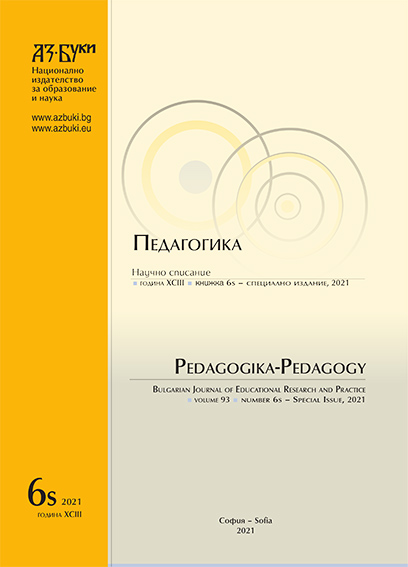Influence Of Optimism Upon The Accumulation Of Stress, Mental State And Perceived Risks For The Future Of Students, In The Conditions Of Covid–19 Pandemic
Influence Of Optimism Upon The Accumulation Of Stress, Mental State And Perceived Risks For The Future Of Students, In The Conditions Of Covid–19 Pandemic
Author(s): Valeri StoyanovSubject(s): Social Sciences, Education, Vocational Education, Adult Education, Higher Education , State/Government and Education, Sociology of Education, Distance learning / e-learning, Pedagogy
Published by: Национално издателство за образование и наука „Аз-буки“
Keywords: optimism; COVID-19 pandemic; social isolation; accumulated stress; mental stat
Summary/Abstract: An empirical psychological study was conducted with students from Nikola Vaptsarov Naval Academy, using both quantitative and qualitative approaches. The aim of the research was to test the role of optimism on the accumulation of stress in the conditions of pandemic of COVID-19, their mental states, experiences in connection with social isolation and perceived risks for the future and career. It has been found that optimism, as a generalized personal expectation, has a strong buffering effect on the impact of accumulated pandemic stress on students’ emotional states. Negative expectations do not have a significant effect on the emotional state. Optimism and negative expectations have no effect on fears for the future and perceived risks for young people as a result of the COVID-19 pandemic. Obviously, other personal and social factors determine the negative expectations for the acquired competencies during distance learning – online, as well as for more difficult careers and career problems for this reason. More pronounced negative expectations make it more difficult for students to tolerate social isolation, while optimism has no statistically significant impact on social isolation experiences during a pandemic. Students with more optimism perceive their mental state as stable, good, while those with reduced optimism and more pronounced negative expectations as shaky, depressed. The results of the study suggest the need for additional activity of higher education institutions in such conditions to support and advise students.
Journal: Педагогика
- Issue Year: 93/2021
- Issue No: 6s
- Page Range: 63-72
- Page Count: 9
- Language: English
- Content File-PDF

